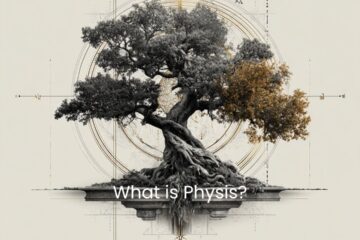
What is Boulesis?
Boulesis in Stoicism is the rational will or moral desire directed toward what is truly good. It reflects the inner movement of the soul that seeks virtue and harmony with nature.
While passions pull us toward pleasure and away from pain, boulēsis is guided by reason; it’s the Stoic’s disciplined wish for the good life. Understanding this concept helps modern readers distinguish between wanting what feels right and choosing what is right.
Break Down the Word
The Greek term βούλησις (boulēsis) comes from boulē, meaning “will,” “purpose,” or “deliberate choice.” In classical Greek, it referred to the rational aspect of desire, the capacity to wish for something with conscious understanding.
For the Stoics, this was no ordinary wish. Boulesis represented the moral dimension of will, the part of the psyche that strives toward virtue rather than external satisfaction. It was contrasted with epithymia, irrational or uncontrolled desire.
In short, boulesis is the Stoic will aligned with reason and virtue. It is what the wise person experiences when they act according to their moral understanding of the good.
Key Dimensions of Boulesis
- Rational Desire: Boulesis is the deliberate, reasoned wish for the good, free from impulsive emotion or self-centered motive.
- Moral Orientation: Unlike ordinary wanting, it seeks only what is virtuous, never what depends on luck or chance.
- Harmony with Nature: It aligns human will with the rational order of the universe.
Boulesis and Eupatheia: The Good Emotion of the Wise
Within Stoic psychology, every passion (pathos) has a rational counterpart called a eupatheia, a “good emotion” arising from correct judgment.
Where uncontrolled desire (epithymia) leads to anxiety and disappointment, the wise person experiences boulesis; the calm, rational desire for the good.
Epictetus and Chrysippus both describe boulesis as a moral affection, not an emotion to suppress but one to cultivate. Margaret Graver notes that eupatheiai such as boulesis express harmony between feeling and reason: they are not the absence of emotion, but emotion perfected.
In this sense, boulesis is the eupatheia of desire, the healthy, virtuous wish that reflects moral insight. The Stoic sage still feels, but their feelings follow understanding, not impulse.
Core Stoic Principles Connected to Boulesis
Boulesis touches several Stoic principles at once:
- Virtue (aretē): Only the good person can truly will the good; boulesis expresses the Stoic’s moral purpose in action.
- Reason (logos): It is reason that guides desire, transforming emotion into intention.
- Nature (physis): Acting from boulesis means living according to nature, rational, calm, and cooperative with the world’s order.
- Good Emotions (eupatheiai): Boulesis represents the eupatheia of desire, the purified emotional state of the wise person whose will and understanding are in harmony. It replaces epithymia with disciplined moral aspiration.
Epictetus often framed this distinction clearly. He noted that while ordinary people desire outcomes, the philosopher desires to act well. That act of willing in harmony with reason; that is, boulesis.
Modern Misunderstandings
Modern culture often equates “will” with sheer determination or personal ambition. But for the Stoics, boulesis is not about control; it’s about reason and making the moral choice.
It’s not the stubborn insistence on getting what we want, but the steady commitment to wanting what is right.
In today’s terms, we could say: the Stoic doesn’t manifest goals; they align their will with wisdom.
Why Boulesis Is Central to Stoicism
Boulesis sits at the core of Stoic moral psychology. It can be described as the perfected form of orexis (impulse or desire), the wise person’s rational impulse toward virtue.
As eupatheia, boulesis is proof that emotion and reason can coexist in harmony. It shows that Stoicism is not about emotional detachment but emotional intelligence, training desire itself to follow truth.
Margaret Graver, in Stoicism and Emotion, explains that the transformation from pathos to eupatheia occurs when one’s judgments align with nature. In boulesis, the soul no longer craves pleasure or fears loss; it simply wills the good.
Practical Applications
To cultivate boulesis in daily life:
- Journal about what you truly want. Ask: “Is this within my control? Does it lead toward virtue?”
- Reflect before acting. Replace “What do I want right now?” with “What would the wise person will in this moment?”
- Align your desires with your duties. Turn responsibility into practice, the Stoic’s will is expressed through moral action.
For deeper guidance, explore our Stoic Coaching program or visit our Marcus Aurelius Quotes page for reflections on will, discipline, and inner freedom.
FAQ
What does boulesis mean in Stoicism?
It means the rational will, the moral desire to pursue what is good and virtuous, guided by reason.
How is boulesis related to eupatheia?
Boulesis is the eupatheia of desire, the calm, rational wish for the good, replacing irrational craving (epithymia).
Can anyone develop boulesis?
Yes. Through reflection, discipline, and self-awareness, anyone can train their will to seek virtue rather than external rewards.
Conclusion
Boulesis represents the highest form of human will, the Stoic’s inner alignment with the good.
When you practice boulesis, you are no longer ruled by impulse but guided by reason and virtue. It is the art of wanting wisely.
Want to explore more about Stoicism?
Book a free consultation with one of our Stoic Coaches or learn about more Stoic philosophy terms. You can also listen to the Via Stoica podcast on Spotify or Apple Podcasts or watch it on YouTube.
Author Bio
Benny Voncken is the co-founder of Via Stoica, where he helps people apply Stoic philosophy to modern life. He is a Stoic coach, writer, and podcast host of The Via Stoica Podcast. With almost a decade of teaching experience and daily Stoic practice, Benny creates resources, workshops, and reflections that make ancient wisdom practical today.



0 Comments